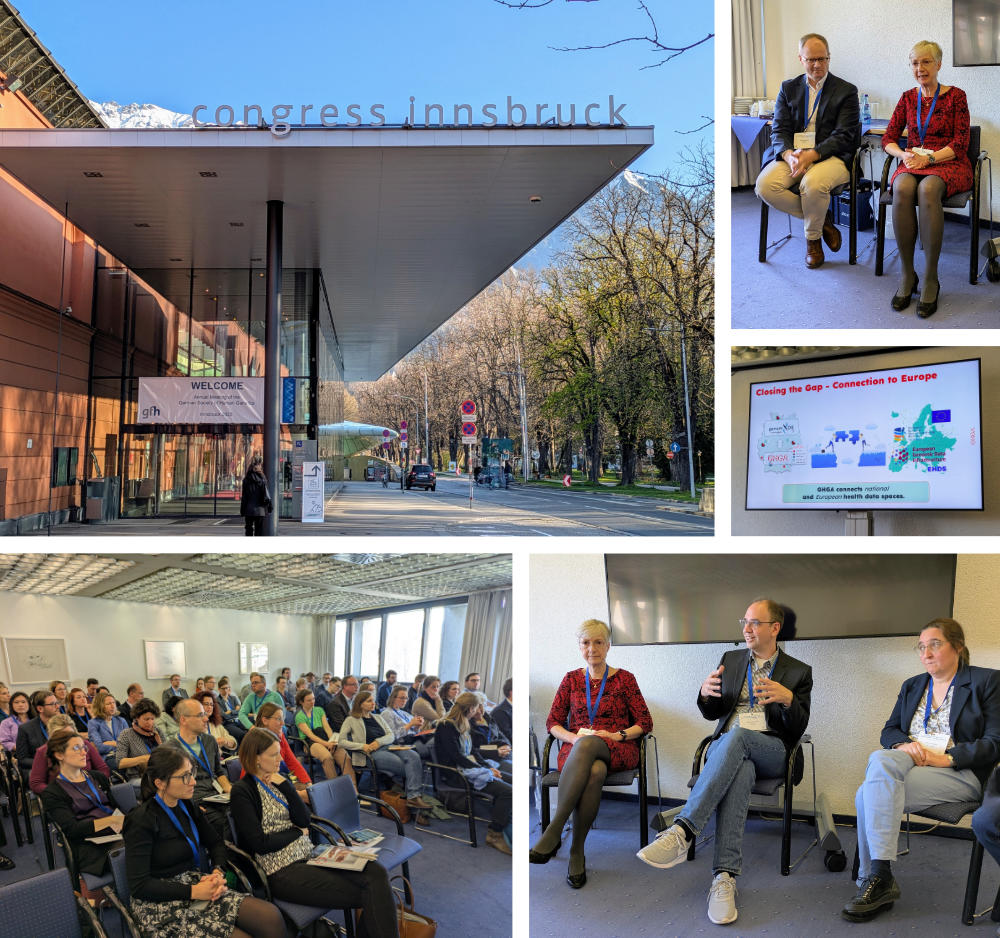GHGA Workshop at GfH 2025: Advancing Genomic Medicine in Germany
- 17 Apr 2025
- Anna Benet-Pages
At this year’s annual meeting of the German Society for Human Genetics (GfH), GHGA hosted a well-attended workshop titled “The German Model Project Genome Sequencing: Genomic Medicine in Healthcare and Research” on April 3. The session brought together experts and interested participants for insightful discussions on the future of genomic data in research and healthcare.
The workshop explored the connection between the genomDE Model Project and GHGA, highlighting their roles in shaping a national infrastructure for the secondary use of genomic data. While genomDE is set to play a central role in enabling Germany’s future contributions through the data generated in the model project, GHGA will support this effort by providing secure infrastructure and facilitating international genome data management for secondary research.
Dr. Catharina Scholl (BfArM, Bonn) kicked off the workshop with an overview of the genomDE Model Project, detailing how patient-consented genomic and clinical data will be distributed across infrastructure components (i.e. clinical data nodes and genome data centers). She also covered the adherence to national and international data standards and the robust quality control mechanisms in place. Patient diagnostic enrollment is projected to grow to 10,000 individuals by 2025.
Prof. Oliver Kohlbacher (GHGA, Tübingen) followed with a deep dive into GHGA’s infrastructure and its European integration. He explained GHGA’s double federation concept of distributed infrastructure in data hubs within Germany and as the national node for the Federated European Genome-phenome Archive (FEGA), enabling secure data sharing and processing across borders. Importantly, only non-personal metadata is shared with FEGA to ensure data findability, while access to sensitive data is tightly controlled through a data access agreement process.
Prof. Kohlbacher also introduced GHGA’s upcoming secure processing environment (SPE) within the genomDE model project, which will allow researchers to analyze large-scale data ensuring both efficiency and data protection.
The workshop concluded with a thought panel discussion titled “Quo Vadis Genome Medicine in Germany?”, featuring Prof. Dr. Evelin Schröck (Dresden), Prof. Dr. Olaf Riess (Tübingen), and Prof. Dr. Malte Spielmann (Lübeck). Topics included record linkage with Bfarm, the automatic archiving of pseudonymized, consented data at GHGA, and the creation of disease-based cohorts. The panel also explored the role of patient consent in regulating data access and the future inclusion of broader omics data—such as proteomics and metabolomics—for secondary research.
We thank all participants and speakers for their valuable contributions and lively engagement. We look forward to continuing these important conversations at the next GfH conference!





